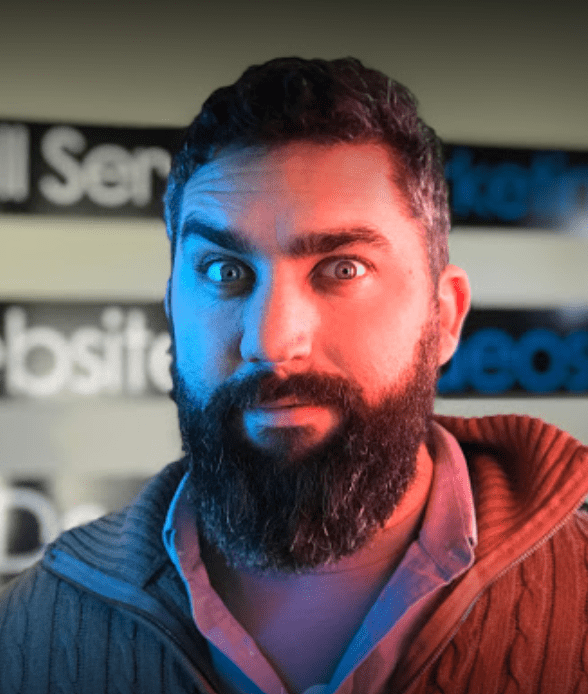Solutions
Google Paid Search
"*" indicates required fields
Everything About Our Google Ads Agency
In 2021, businesses spent almost $210B on Google Ads. In fact, from 2020 to 2021, Google reported an increase of over $60B in ad spend on its platform. Of all the options businesses have for pay-per-click (PPC) advertising, Google remains the leading choice.
Every year, Google introduces new privacy policies and advertising tools. The goal is to help business owners get the highest value from their Google Ads budget. But with these changes, many businesses find that what used to work on Google Ads isn’t as effective as it used to be.
If you have noticed that your conversions, sales, and lead generation through Google Ads have been impacted, you aren’t alone. Unless you are keeping up with all the new changes and testing different strategies, you may be burning through your ad budget without getting the results you need for your business.
Should I Be Advertising On Google?
At Matt Kundo Digital Marketing, our paid search professionals are certified and constantly monitoring the changes that impact advertising reach. We help companies across the United States optimize Google Ads to achieve results.
Business owners are not always sure whether they should be using Google Ads. Or how to target your ideal customer. Our team of certified Google Ads professionals will help you define your buyer personas by reviewing data on your Google Console. And design a strategy to help you improve website traffic, reach, convince and convert clicks to sales opportunities.
What Kind of Businesses Use Google Ads?
Whether you own a small business or run a corporation, you can gain new customers and increase sales by placing Google Ads monthly. With over 70,000 searches on Google every second of the day, it is an effective way to find new customers.
Google Ads can be set to target both consumer (B2C) and industry (B2B) depending on your ideal customer. Some of the industries that rely on Google Ads include:
- Retail (brick and mortar stores).
- eCommerce (online only sales.
- Law firms and legal services.
- Real estate companies.
- Medical and dental service providers.
- Insurance organizations.
- CBD and supplement manufacturers.
- Med Spas and aesthetic services.
- Industrial suppliers.
- Equipment manufacturers.
- Pet products and services.
- Non-profit organizations.
Businesses rely on Google Ads to introduce new potential customers to their products or services. But because Google Ads are so effective, competition is fierce to reach the same customers every day. And that’s why outsourcing your Google Ads to certified professionals matters.
How Do Google Ads Work?
If you aren’t sure how Google finds your ideal customer and serves your ads to that individual, you can run a fun and quick test to learn how it works.
Do a Google search for something unique. For example, type “Green Socks” into Google Search. Notice how Google has provided hundreds of thousands (maybe millions) of pages about “Green Socks” after your search? That is how the search engine works.
But over the next two weeks, something interesting will happen. You’ll start to see advertisements for “Green Socks.” Banners will start popping up with images of products that match your search. Not just on Google but also on YouTube and other social media channels like Facebook.
That is how businesses find new customers every day. Creating Google Ads with specific highly searched keywords will allow Google to serve (or deliver) your ad to the customers looking for your product or services.
Why Does Google Reject Ads?
You have created the perfect ad and defined your audience. Or the people you want to see the advertisement, based on your target market. And then… you get a message that your Google Ad was not approved. Now what?
Every advertisement that is placed on Google is carefully screened for compliance. That means many different steps to ensure that Google accepts your ad. In some cases, depending on your product or service, getting your ad approved can be very difficult.
Some of the reasons why Google Ads are rejected include:
- Prohibited product or service.
- Spelling and grammatical errors.
- Capitalization problems.
- Use of non-standard symbols in the ad copy.
- Misleading call to action. Also called “Trick to Click.”
- A mismatch between ad copy and destination URL.
- Lack of spacing or gimmicky spacing in text.
- Copyright infringement. This includes using images without permission.
- Excessive repetition of words, i.e., “Look here! Look here!”
Google is picky about quality. But that is for a good reason.
Can you imagine how tired you would get of seeing gimmicky ads every day? And you’d stop paying attention to them altogether. To get advertising conversions (and sales), the quality of your Google Ads matters.
The Google Ad Quality Score (QS)
The high standards for Google Ads help businesses get better results. According to Search Engine Journal, Google suspended over 5 million ad accounts in one year alone. That’s how seriously the world’s largest search engine is protecting consumers from bad advertisers.
The Google Quality Score (QS) is a valuable tool. In your Google Ads report, you will see a score from 1-10 provided for each one of your ads. This is based on three criteria: the keywords you use, the landing pages you send customers to, and the overall quality of the ad.
Over time, if you run Google Ads with a high QS, you will see an improvement in Ad Rank. An excellent average score for Google Ads is 7-10. And the Ad Rank will determine how many people will see your ad.
What is Click-Fraud?
Even when you create perfect ads targeting your ideal customer, click fraud can still occur. Businesses pay by the click when it comes to Google Ads. And you want to make sure that you are reaching real customers.
Unfortunately, click fraud can be an issue. It can be bots (automated software) programmed to click on your ads. It can also be competitors running software to limit the reach of your Google Ads.
At Matt Kundo Digital Marketing, we use advanced software to detect and prevent click fraud to help your business connect with real customers. This helps reduce wasted spend on ads that are not reaching your customers.
Our Google Ads Process
Local Search Vs. National Reach
As a business owner, you already know where the majority of your customers come from. Depending on your model, you may rely on foot traffic to your location(s). Or, your business may have national and even global reach.
When a local business wants to increase website traffic and sales conversions, there are many different tools to geographically target customers near you. We’ll discuss where your sales or leads come from and methods we’ll use to incorporate local search and SEO if required.
Evaluation of Website Traffic and Buyer Persona
Many business owners are unaware of the wealth of insights in the Google Console. There is more information provided on Google than just the number of visitors you get to your website every month.
Our Google Ads Certified team will schedule a meeting to learn more about your business goals. And help you refine your buyer persona so we can accurately target your customers with creative advertising.
Competitive Evaluation
It is essential to look at your competitors, whether locally, nationally, or globally. That is because the insights we gather from a competitive analysis improve the quality and the results you will get from your Google Ad spend.
Setting Advertising Budget and Goals
Before we create a strategy, we have to understand the goals you have for your business. Is lead generation your priority? Or are you selling goods online? Our team at Matt Kundo Digital Marketing will walk you through the process of defining your goals and build a custom strategy to help you reach them.
The next step is to determine your monthly spend. Some small and medium-sized businesses have a misconception that a limited budget means fewer results. Google recommends a minimum spend of $50 per day to achieve measurable results. But with creativity and keyword-optimized advertising content, we’ve helped small business owners achieve great results.
Keyword Research
Google Trends and other enterprise software allow us to take a close look at keywords. That includes the search terms drawing organic (unpaid) traffic to your website monthly. And the top search terms your customers type into Google search when they are looking for your product or services.
We provide a list of keywords that represent your best opportunities. There may be some popular keywords used in advertising for your industry. But, if all your competitors use those terms, it can be harder to reach your customers using those exact keywords. And more expensive CPC (cost-per-click) to run ads with those search terms.
Our team at Matt Kundo Digital Marketing looks at popular keywords and terms that could perform better with less competition. And designs campaigns to target customers in ways your competitors may not be using to get better results.
Creating Effective Google Ads Campaigns
Reaching customers and cutting through the competitive advertising volume are two ways we measure quality Google Ads campaigns. Our creative team will develop unique stories about your products or services. And design multiple campaigns to help you reach your top value customers.
During this process, we also develop custom audiences. Your business may have many different types of customers. We take the audience personas and use Google data to research the best way to reach each target market.
That can include:
- Geotargeting (local traffic or markets in other regions where you want to reach new customers and grow sales or leads. And the areas that you do not want to spend any of your advertising budgets on.
- Demographic targeting (age, gender, income, occupation, and other criteria that will help deliver your Google Ads to the right potential customers).
- Targeting the right devices for ad delivery. Are most of your customers on desktop or tablets versus mobile? Ad spends are usually split, with more emphasis on ads to be viewed on smartphones in 2022.
- Scheduling your ads for peak days, times, and holidays. This is part of an effective Google Ads strategy.
Think about your Google Ads budget as being divided into many different buckets. Certified Google Ads experts start based on data, experience, and intuition. After a few months of advertising, more insights are available to further refine and improve advertising conversions.
Not sure where to get started?
Send me a note, and we'll figure it out.
"*" indicates required fields
Stop Wasting Money on Google Ads That Don’t Work
It isn’t hard to learn how to create and launch Google Ads. But you will not get the same results if you are not a certified ad professional. And that can be an expensive and frustrating experience for business owners.
Google Ads work. But only if your advertising campaign is backed by analytical data, science, and creativity. Talk to our team at Matt Kundo Digital Marketing to schedule a review of your current Google Ads results. And learn how we can make every advertising dollar count to help you reach your business goals.
What you get.
Campaign Configuration
- Keyword Research - Est. Monthly Search Volume, Est. Cost per Click, Competition Level, Trend
- Ad Group Organization of Keywords
- Custom Ad Copywriting - Unique, Specific, Relevant
- Ad Extensions - Sitelink, Callout, Call, Location, Structured Snippet, Promotion
- Campaign Budget & Bidding Strategy
- Ad Schedule
- Demographic Targeting - Age, Gender
- Location Targeting - Countries, States, Counties, Cities, Zip Codes, Radiuses
- Location Exclusions
- Conversion Tracking - Phone Calls, Form Submissions, Page Views, Link Clicks
- Device Targeting - Desktop, Mobile, Tablet
- Observation Audiences
Optimization & Maintenance
- Daily or Monthly Budget Management
- Keyword Bidding
- Keyword Testing
- Search Term Reports
- Negative Keywords
- Ad Copy Updates
- Landing Page Updates
- Bid Adjustments
Reporting & Analysis
- Clicks, Impressions, Click Thru Rate
- Search Impression Share
- Keyword Quality Score
- Ad Relevance
- Landing Page Experience
- Amount Spent
- Avg. Cost per Click
- Conversions
- Conversion Rate
- Cost per Conversion
What our clients are saying.





